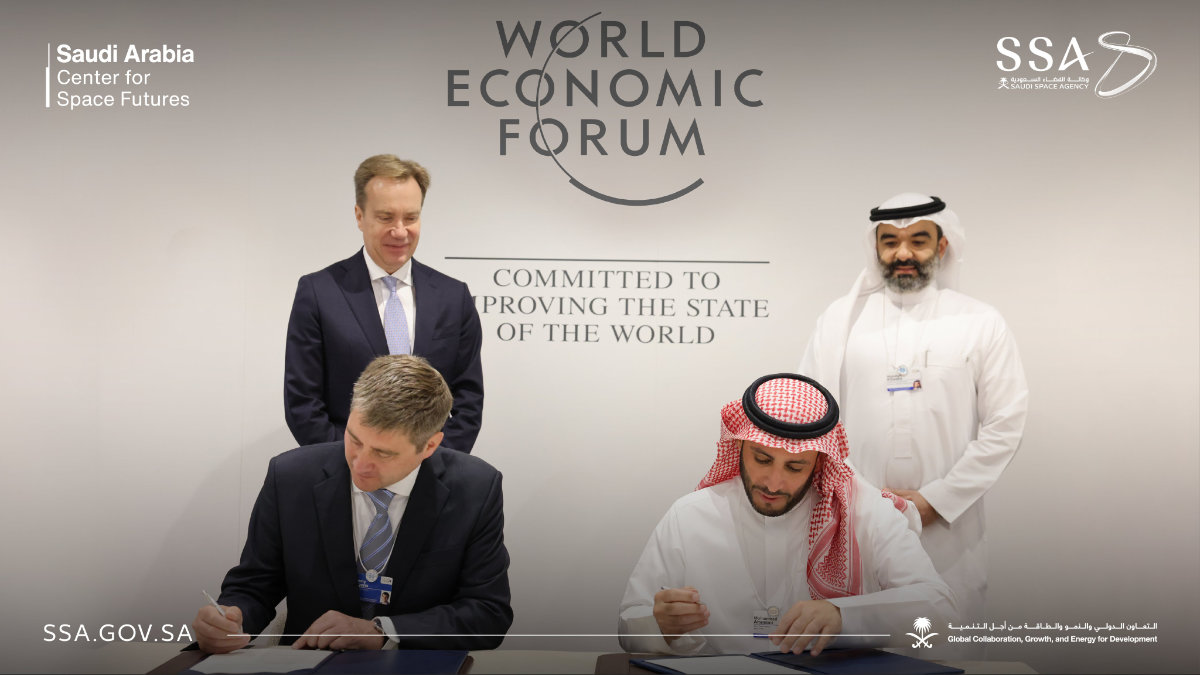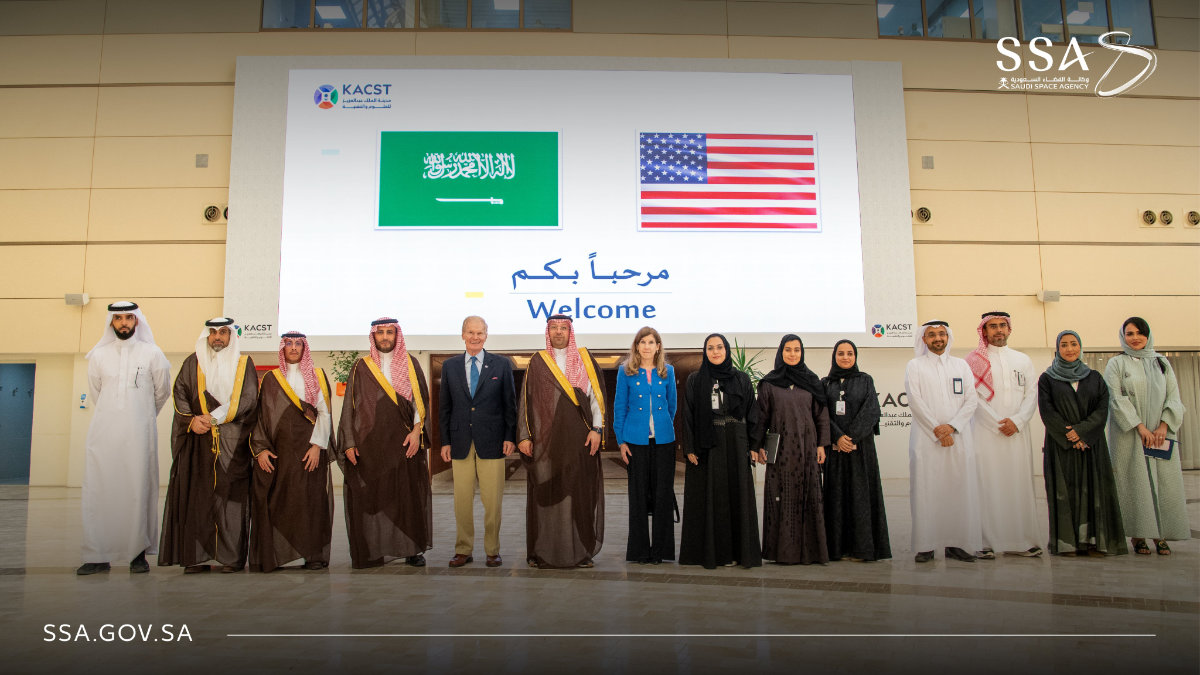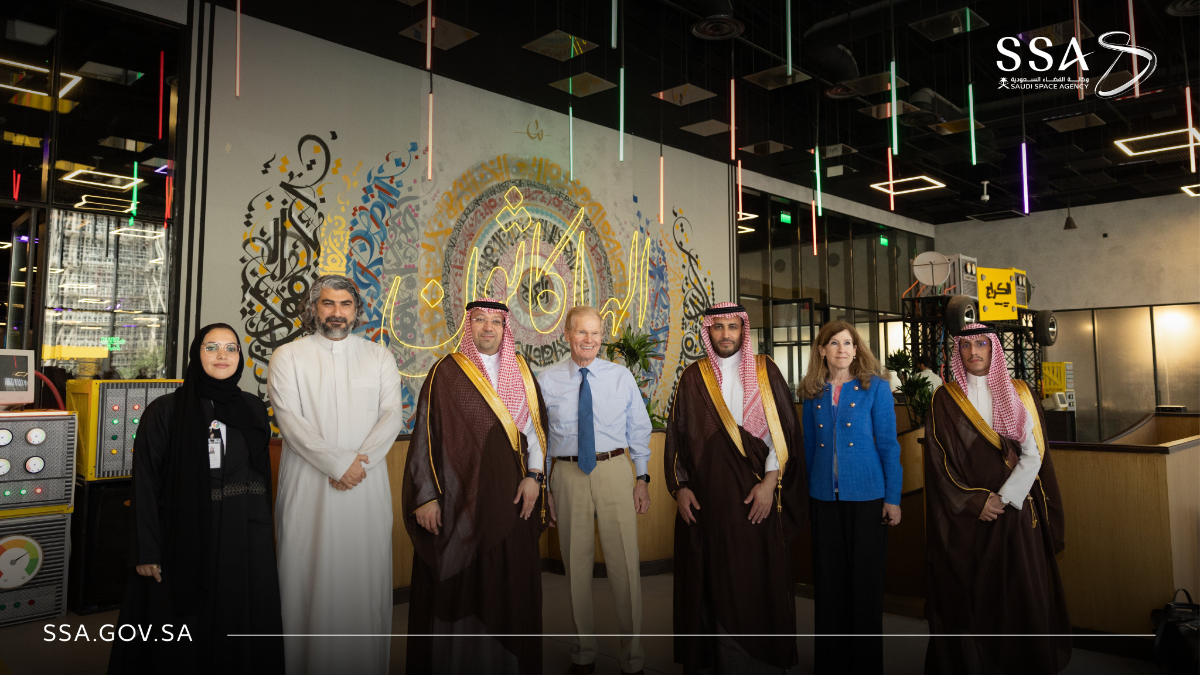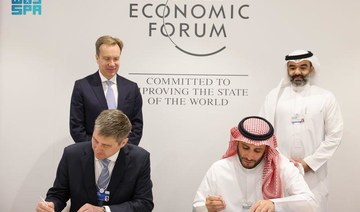LONDON: The ancient Saudi city of AlUla is rapidly becoming one of the Kingdom’s top destinations for local and international travelers, officials say, but mass tourism is not their top priority.
“We are growing, and we are growing very fast (but) part of our mission is to respond to sustainable and responsible tourism,” Rami Al-Moallim, vice president of the destination management and marketing office at Royal Commission for AlUla, told Arab News. “We are not yet open for mass tourism, and it is not the focus.
“We need people to experience AlUla, to feel AlUla, to enjoy AlUla, to have unforgettable memories in AlUla, so we’re growing responsibly.”
In terms of targets, he said the aim this year was to attract 250,000 visitors, which is already being achieved, and 292,000 next year.
“We believe this steady growth will be reached very soon (and) we are (targeting) around 1.2 million visitors by 2030,” Al-Moallim said. “We are growing steadily year over year (and providing) very good experiences for people to enjoy.”
The commission took part in the World Travel Market in London last week. It was the second time it has participated in the annual event under the banner of the Saudi Tourism Authority but the first in which it had a separate booth within the Kingdom’s pavilion.
According to Al-Moallim, the decision to expand its presence at the event this year was made because of the growing interest in AlUla in the international travel market, its increased tourism capacities, higher direct investments from travel partners, including hotel operators and activity providers, and greater numbers of partners who want to showcase what they offer.
The commission’s booth, which was larger than the entire presence of some countries at the event, showcased eight partners in particular, including hotel companies; Live Nation, which manages the Maraya concert hall; and tours and tourism operators Hero Adventure Experiences, Pangea Club and Warrior for Adventures.
The main established hospitality partners in AlUla, which is in Madinah province, currently include Habitas, Banyan Tree, Shaden and Cloud7, Al-Moallim said, but in London the commission also showcased new collaborators, including Dar Tantoura, an eco-friendly boutique hotel with 30 rooms. As plans for hospitality and accommodation in AlUla continue to expand, more will follow soon, he added.
“Dar Tantora will be followed by Hegra Heritage Boutique Hotel, which is another 30-room hotel, in Hegra, then Autograph Collection is also coming in 2025, followed by Six Senses in 2026,” Al-Moallim said.
“In addition to that, Cloud7 is (working on) an expansion currently to double the room capacity by this year-end.”
From an environmental perspective, the four pillars of sustainability — social, human, economic and environmental — are at the heart of the commission’s operations, he added, and it has adopted several initiatives under the banner of the Saudi Green Initiative.
“The newest project that we have, which is the Experiential Tram, is a low-carbon-emission tramway (covering a distance) of 22 kilometers,” Al-Moallim said. “It has 17 stations, so it takes you from the north to the south of AlUla, visiting the whole Journey Through Time master plan.”
On the social and economic fronts, he added, the Madrasat Addeera initiative offers workshops on handicrafts, art and education, with the aim of preserving and reviving local culture, heritage and traditions.
“Looking at the numbers and the key source markets, of course (Saudi Arabia) and the GCC (Gulf Cooperation Council) markets are the key for us” he said, adding that 72 percent of tourists who visited only AlUla in the Kingdom in 2022 came from these areas.
The rest of the world therefore accounted for 28 percent of visitors last year, with 11 percent from Europe alone, Al-Moallim said. The UK was a major source market, followed by France, Italy and Germany. Places outside of Europe, including the US and China, were lower on the list.
Antony Doucet, chief experience officer at Kerten Hospitality, participated in the World Travel Market, where he represented AlUla’s Dar Tantora House Hotel and the Cloud7 Residence. The latter opened in December last year and is set to increase its capacity to 300 rooms, which will make it the largest hotel in AlUla, while the former is set to open on Jan. 15, with 30 keys, he said.
“We don’t like to call (Dar Tantora) a hotel, rather a ‘hospitality experience’ because we’re inviting people to slow down and go back through different times of AlUla,” he said.
It will have a community and cultural manager, Doucet said, who can suggest activities inside and outside the hotel for visitors during their stay, culinary experiences that offer a chance to try traditional Saudi cuisine with a modern twist, and a spa that explores Arabian beauty secrets using natural ingredients from the area, including Peregrina oil.
“It’s also a very personalized and custom-made experience,” he added, as guest will be contacted a week before arrival to help staff better understand the purposes of their stay, their personalities, and their tastes in music and literature.
“It’s also important to note that we have limited electricity,” said Doucet. “We will have only two electric plugs per room, no air conditioning but natural ventilation, and we will be, I think, the first hotel to have drinkable water from the tap,” which will be purified on site.
This reflects the hotel’s commitment to sustainable tourism in AlUla and to the protection of the UNESCO World Heritage Site, he added.
Art will also play an important role at Dar Tantora, where a unique art collection, including bespoke pieces currently being created, will be on display. In addition, it will offer about 10 retail spaces.
Husaak Adventures was one of the tour operators promoting its activities in AlUla during the event in London where, for a second year, it was part of the Kingdom’s pavilion.
The company is an “activator” that works with the Royal Commission and other Saudi government entities to create a range of experiences and services, said Nikki McDonnell, its director of sales and marketing. These include hiking and mountain-biking trails, “glamping” resorts, visitor centers, accommodation solutions, stargazing events, and other adventures and cultural experiences designed to appeal to local and international visitors.
The Saudi-registered business was founded about 10 years ago when there were relatively few tourists or any significant adventure-tourism sector in the region, she said, but now the Kingdom has become a “pioneer” in the field, and the growth and “development they have had in the last couple of years is amazing, and there’s so much opportunity to develop further jewels of Saudi Arabia.”
She added: “We have since developed, and now we offer, over 14 different daily experiences for visitors, as well as the glamping and accommodation solutions that offer affordable accommodation within what is known as a luxury destination.”
AlUla has incredible history, McDonnell said, and one of its key tourist attractions is the ancient Incense Road in Hegra, also known as Mada’in Saleh.
“There’s a big misconception that Saudi Arabia is very hot and it’s only a seasonal destination — it’s not,” she said. The climate and landscape are so diverse that travelers can visit all year round to explore the country’s “rich heritage,” she added.
McDonnell said part of Husaak’s focus is on increasing consumer awareness of AlUla, so while it works with other destination-management and travel companies to package its experiences and programs for visitors, it also carries out a lot of digital marketing in its own right.
“We are on Tripadvisor, our glamping is on Booking.com, we invest in Google heavily to target visitors before they come into the country, (we are) on social media to drive our traffic, and we also advertise annually with National Geographic,” she said.
“Can we develop more experiences, more unforgettable experiences? Yes, and that’s our goal as a company, just to continue to drive and build those experiences and build a legacy for visitors.”
Imad Sulaiman, the general manager of Athaar Arabia, a pioneering destination-management company in the Kingdom, said: “Despite the COVID years, Saudi Arabia is an amazing destination, and with Vision 2030 announcing the (introduction of the) tourist visa, (the country) has strongly found its way onto the tourist map around the world, so this has been a very good achievement over the past three years.
“We are lucky because everybody is talking about Saudi Arabia; the gigaprojects, sports activities and other huge efforts which the Saudi Tourism Authority is doing with other stakeholders … to show Saudi Arabia to the world. They went beyond our expectations.”
Tourism Minister Ahmed Al-Khateeb announced at the Future Investment Initiative forum in Riyadh this month an increased target of attracting 150 million tourists a year by 2030. Sulaiman said it is a target that can “be achieved because Saudi Arabia is a new destination to travelers” and is attracting a lot of interest due to the massive development projects that are helping to support businesses in the tourism sector.
“I call Saudi Arabia a hidden jewel because it’s not shown to the world,” he said, but now “we have a huge demand from different tour operators requesting different types of business or traveler packages to their clients,” from high-end experiences to adventure holidays.
Thanks to the “good news” about the Kingdom’s potential and in-progress bids to host World Expo 2030, the 2034 FIFA World Cup and the Winter Olympics, together with the major sporting events it already hosts, including Formula One and Formula E, “all these projects give us big power to work hard to be able to achieve this target,” Sulaiman said.
He added that he is “proud of all these things” because he worked in the sector in the days before Vision 2030, and all the developments that have followed since it was announced in 2016 have been “beyond our expectation — it’s amazing.”
Ancient Saudi city of AlUla focusing on sustainability not mass tourism, officials say
https://arab.news/pnkcm
Ancient Saudi city of AlUla focusing on sustainability not mass tourism, officials say

- The UNESCO World Heritage Site is becoming one of the Kingdom’s top tourist destinations but a top Royal Commission for AlUla official tells Arab News ‘We’re growing responsibly’
- The commission took part in the World Travel Market in London last week where, for the first time, it had its own booth within the Kingdom’s pavilion at the event
Oil Updates – prices rise on slower US inflation, strong demand

SINGAPORE: Oil prices extended gains from the previous session on Thursday on signs of stronger demand in the US, where data showed slower inflation than markets expected, bolstering the argument for an interest rate cut that could drive greater consumption, according to Reuters.
Brent futures rose 32 cents, or 0.4 percent, to $83.07 a barrel at 9:20 a.m. Saudi time, while US West Texas Intermediate crude gained 31 cents, or 0.4 percent, to $78.94.
“A more tamed read for US April inflation and a far weaker-than-expected read in US retail sales seem to offer room for the Fed to consider earlier rate cuts, with market expectations leaning more firmly for policy easing to kickstart in September this year,” said IG market strategist Yeap Jun Rong.
“The larger-than-expected drawdown in US crude inventories for last week also offered some calm, while geopolitical tensions continue to rock on in the Middle East.”
US consumer prices rose less than expected in April in a boost to financial market expectations for a September rate cut by the Federal Reserve, which could temper dollar strength and make oil more affordable for holders of other currencies.
Elsewhere, US crude oil, gasoline and distillate inventories fell, reflecting a rise in both refining activity and fuel demand, showed data from the Energy Information Administration.
Crude inventories fell 2.5 million barrels to 457 million barrels in the week ended May 10, the EIA said, versus the 543,000 barrel consensus analyst forecast in a Reuters poll.
Signs of slowing inflation and stronger demand were supporting prices, ANZ Research also said in a client note, as is geopolitical risk, which it noted remains elevated.
In the Middle East, Israeli troops battled Hamas militants across Gaza, including Rafah, which had been a civilian refuge.
Ceasefire talks mediated by Qatar and Egypt are at a stalemate, with Hamas demanding an end to attacks and Israel refusing until the group is annihilated.
Gains were constrained after the IEA trimmed its forecast for 2024 oil demand growth, widening the gap between its view and that of producer group OPEC.
Global oil demand this year will grow by 1.1 million barrels per day, the IEA said, down 140,000 bpd from its previous forecast, largely due to weak demand in developed nations of the Organization for Economic Co-operation and Development.
Saudi minister and US counterpart agree road map for cooperation in energy sector

- During meeting in Riyadh, Prince Abdulaziz bin Salman and Jennifer Granholm discuss ways to enhance energy-related collaborations
- They also review Kingdom’s efforts to tackle climate change through local and regional initiatives, including the Saudi and the Middle East green initiatives
RIYADH: The Saudi minister of energy, Prince Abdulaziz bin Salman, and the US secretary of energy, Jennifer Granholm, on Wednesday agreed a road map for cooperation between the countries in the sector.
During a meeting in Riyadh, they also discussed ways in which collaborations might be enhanced in energy-related fields such as carbon management, clean hydrogen, nuclear energy, electricity and renewables, innovation, energy-sector supply chain resilience, and energy efficiency. The two countries signed a Partnership Framework for Advancing Clean Energy in July, 2022.
The officials also reviewed the Kingdom’s efforts to tackle climate change through local and regional initiatives based on a circular carbon economy, including the Saudi and the Middle East green initiatives, the ministry said.
The new road map represents a joint plan for energy cooperation that establishes a timeline and outlines critical projects for collaboration, officials said.
Both sides agreed to engage in various activities to implement the road map, including: exchanges of knowledge on policies related to the joint plans, such as standards and regulatory frameworks; enhancement of joint research and development, especially in the field of new technologies; and the building of human capital through training and exchanges of expertise.
Saudi Center for Space Futures will support lunar mission and $2tn global space economy, NASA chief tells Asharq TV

- New center will bring space industries together with government programs, says Bill Nelson on Riyadh visit
- NASA plans to “go back to the moon” with commercial and international partners, agency chief tells Maya Hojeij
RIYADH: The Center for Space Futures, hosted by the Saudi Space Agency, will bring together space industries to send a mission to the moon and build a $2 trillion global space economy by 2035, NASA Administrator Bill Nelson has said.
During a visit to Riyadh this week, the US space agency chief said in a special interview with the Asharq TV channel: “The future of the space center is to bring together space industries, commercial companies, together with the government programs.”
On April 29, the Saudi Space Agency and the World Economic Forum signed an agreement to establish a Centre for the Fourth Industrial Revolution focused on space.

Set to open in the fall of 2024, the Center for Space Futures will be the first center in the C4IR network. It aims to facilitate public-private discussions on space collaboration and contribute to accelerating space technologies.
Nelson told business anchor Maya Hojeij that, after a hiatus of half a century, NASA plans to “go back to the moon.” However, he added: “This time with not only commercial partners, but also with international partners.”
He highlighted that the Center for Space Futures will “bring together those commercial and government programs in order to build a significant space economy.”
Earlier this year, NASA announced that its Artemis II lunar mission will aim to land the first astronauts near the moon’s South Pole in September 2025.

NASA’s administrator added: “We’re talking about a space economy that will be almost $2 trillion dollars by the year 2035 — only a little over a decade away — a significant part of the economic sector of a country.”
Elaborating, he said that the “$2 trillion is worldwide. And that is a lot of startup companies, such as I have seen here in Riyadh today, that are partnering with other companies from around the world that are including incentives by the Saudi government.
“So, we do that in America, and that’s where I mentioned that we’re going back to the moon, this time after a half century, because we were on the moon a half-century ago.
“This time, we’re going back to the moon for a different reason, we’re going to learn, to invent, to create in order to be able to go to Mars and beyond. And this time we go back with commercial enterprises.”
NASA’s Apollo 17, which celebrated its 50th anniversary in December 2022, was the space agency’s sixth and final mission to land people on the moon.
The mission landed on the Taurus-Littrow site, which offered a mix of mountainous highlands and valley lowlands, allowing the crew to collect 741 lunar samples.
Nelson told Asharq’s Hojeij that NASA has partnered with Saudi Arabia on multiple scientific instruments to send Artemis II to the moon for economic benefits and to better understand climate change.

“We have a partnership with Saudi Arabia,” he said. “We’ve already partnered on a number of scientific instruments, but we’ve got a whole way to go.
“We’re going back to the moon and then we’re going to Mars. We are constantly looking down on Earth to help our climate, to better understand what is happening to the Earth, to give very precise measurements of exactly what’s happening there.
“We’re going to coordinate and partner with Saudi Arabia on all of these things.”
Asked about space challenges and how the partnership between Riyadh and Washington sought to address them, Nelson said that debris in space was among the biggest threats to satellites and spacecraft.
“Debris in space is a major problem,” he said. “We are too often having to move our International Space Station to get it out of the way of a piece of space junk that otherwise could hit it.
“Same thing with a lot of our satellites. And so that applies to everybody’s satellites, not just US satellites, Saudi satellites.”
Nelson added that NASA was working with partners “to come up with systems and mechanisms by which we can require the manufacturers of satellites to be able, after their useful life, have a precise landing back through the Earth’s atmosphere to burn up and if any pieces are left over, that they would fall harmlessly in the southern Pacific Ocean.”
Underscoring the importance of these efforts, he said that “whenever something is left in space, it becomes a dangerous projectile that could always ram into something, like our space station.”
The UNU Institute for Environment and Human Security, in its Interconnected Disaster Risks 2023 report, included space debris among its six risk tipping points.
The report, released in February, found that there were 35,150 tracked objects in orbit in 2023. Just 25 percent of these were working satellites while the rest were considered junk, including broken satellites and rocket parts.

As objects in space travel at speeds exceeding 25,000 km per hour, any collision may be “catastrophic,” and even the smallest objects can cause significant damage, according to the same UNU-EHS report.
Asked about the Artemis Accords, which Saudi Arabia signed in 2022, the NASA administrator described it as “a common sense set of principles of the peaceful uses of space.
“For example, in the Artemis Accords, we have that you would come to the aid and assistance of a nation that would have a problem in space,” he said.
“We would develop common elements so that you could help each other out, perhaps remotely in space. But, basically, the thrust of it is the peaceful use of space.”
Saudi Arabia is the 21st country globally and the fourth Middle Eastern nation to sign the Artemis Accords, which set out common principles, guidelines and best practices to ensure safe, peaceful and sustainable space exploration.
Nelson’s visit to the Kingdom is intended to explore future collaboration between the US space agency and key government officials, while also emphasizing the significance of civil space cooperation in the broader US-Saudi relationship

The Saudi Space Agency was launched by royal decree in December 2018 to accelerate economic diversification, enhance research and development, and raise private-sector participation in the global space industry.
Since its launch, the Kingdom’s state-funded space program has struck deals with several of the world’s established space agencies, astronautical companies and top universities to benefit from advanced technological cooperation.
Saudi Arabia’s space industry holds great potential for growth after recording $400 million in revenue in 2022, according to a report by the Saudi Communications, Space and Technology Commission published late last year.
The global space economy is projected to expand to $1.8 trillion by 2035, marking a threefold increase from $630 billion in 2023, according to research published by the World Economic Forum in April.
A growing number of businesses across sectors including agriculture, construction, insurance and climate-change mitigation, are expected to drive the new and expanding space economy.
This rapid surge is being driven by reduced costs and broader accessibility to space-enabled technologies, encompassing various commercial sectors such as communications, positioning, navigation, timing, Earth observation services, tourism and manufacturing.
While state-sponsored investments will remain the cornerstone of the industry, enhanced collaboration between various stakeholders across public and private sectors will be increasingly important to fully realize the sector’s potential in the future.

Speed of Saudi innovation ‘wowing’ UK, says British trade campaign executive

RIYADH: UK delegates at the GREAT Futures Initiative Conference have been “wowed” by Saudi Arabia's business landscape, according to a senior British trade executive.
Speaking during an interview with Arab News, Kate Taylor Tett, director of the GREAT Britain and Northern Ireland Campaign, noted that the event served as a catalyst for change and progress by facilitating cross-sectoral collaboration and dialogue between counterparts from both nations.
She also stressed the fast pace of innovation observed in Saudi Arabia, which has left a strong impression.
“I think what this event has done is put Saudi right at the top of that list. So at the moment, you know, Saudi is the 24th biggest trading partner for the UK,” Tett said.
She added: “I think this top event will really accelerate that because people see it as an opportunity that they need to address right now, not at some point in the future, and hopefully that’s really exciting for businesses.”
Tett also stated that the event attendees were impressed by what they experienced in Saudi Arabia, which led to a shift in their opinions about the market.
“I haven’t spoken to a single person at this event who hasn’t been wowed by what they’ve seen when they’ve come here. I think their opinions have shifted, and that in itself is a huge opportunity,” she said.
Tett also explained that the event is not just a two-day gathering; it is a program that extends over a year and involves various collaborations between UK businesses and counterparts in Saudi Arabia.
“I know there’ll be lots of sort of cross-fertilization in that way, so this, these two days are very much a catalyst for initially a year-long program. But I think what you’ll see is that then that becomes a leap pad for things beyond that,” she said.
Commenting on the UK-Saudi partnerships, Tett emphasized the significance of innovation in collaboration between countries that are actively engaged in progressive undertakings.
She also stressed the fast pace of innovation observed in Saudi Arabia, which has left a strong impression.
“Everybody I’ve spoken to here has just been wowed by the pace of innovation in Saudi. And clearly bringing that innovation together and companies working together just creates these huge opportunities which have an economic benefit on both sides of the partnership,” Tett underscored.
She added: “I think what really hit me has been the energy and the positivity of everybody that I’ve met. I spent some time working in the world of startups, and I think Saudi feels like a huge startup. Everything feels possible.”
She concluded by expressing her enthusiasm among the participants and describing their collective drive to make progress as “really infectious.”
Saudi property forum to enhance local real estate supply chain access

RIYADH: Saudi real estate firms are poised to gain improved access to the supply chain with major industry players set to gather in Riyadh for an event designed to enhance cooperation and forge partnerships.
Under the patronage of the Minister of Municipal and Rural Affairs and Housing Majid bin Abdullah Al-Hogail, the National Housing Co. will host the Real Estate Supply Chain Forum from May 20 to 21 at the JW Marriot Hotel Riyadh, with the aim of fostering the growth of the property sector.
The event will gather a diverse array of local and international companies, consultants, contractors, and manufacturers to explore collaborative opportunities aimed at delivering integrated housing projects focused on quality and affordability, according to the Saudi Press Agency.
The forum will also provide promising investment opportunities, facilitate the signing of investment agreements and strategic partnerships, establish new standards, and find innovative solutions for real estate development.
Additionally, the gathering will unveil the latest agreements to secure supply chains between the NHC and a range of local and global partners.
Several scheduled dialogue sessions will showcase the latest technologies in the building materials industries. These talks will facilitate the exchange of expertise between local and international companies, aiming to enhance the supply chain network.
On May 5, the NHC signed a deal with China’s leading firm, CITIC Construction Group, to establish an industrial city and logistic zones for building materials, comprising 12 factories, with the objective of securing supply chains for the NHC’s housing projects.
NHC CEO Mohammad Al-Buty finalized the deal during Al-Hogail’s official visit to China.
The NHC said the agreement with the Chinese construction group is part of its efforts to secure supply chains for its housing projects and ensure their timely completion and high quality.
The Saudi company highlighted that the deal includes the construction of 12 factories specializing in building materials, harnessing Chinese expertise, and involving local factories to uplift business standards.
It added that the agreement also aims to draw top-tier service providers across various company sectors, its subsidiaries, and other projects.
The firm pointed out that the pact is expected to maximize the economic and developmental impact of the real estate sector in the Kingdom, develop housing projects, enhance their quality, and promote national transformation in the construction sector through these industrial cities and logistic zones.




















